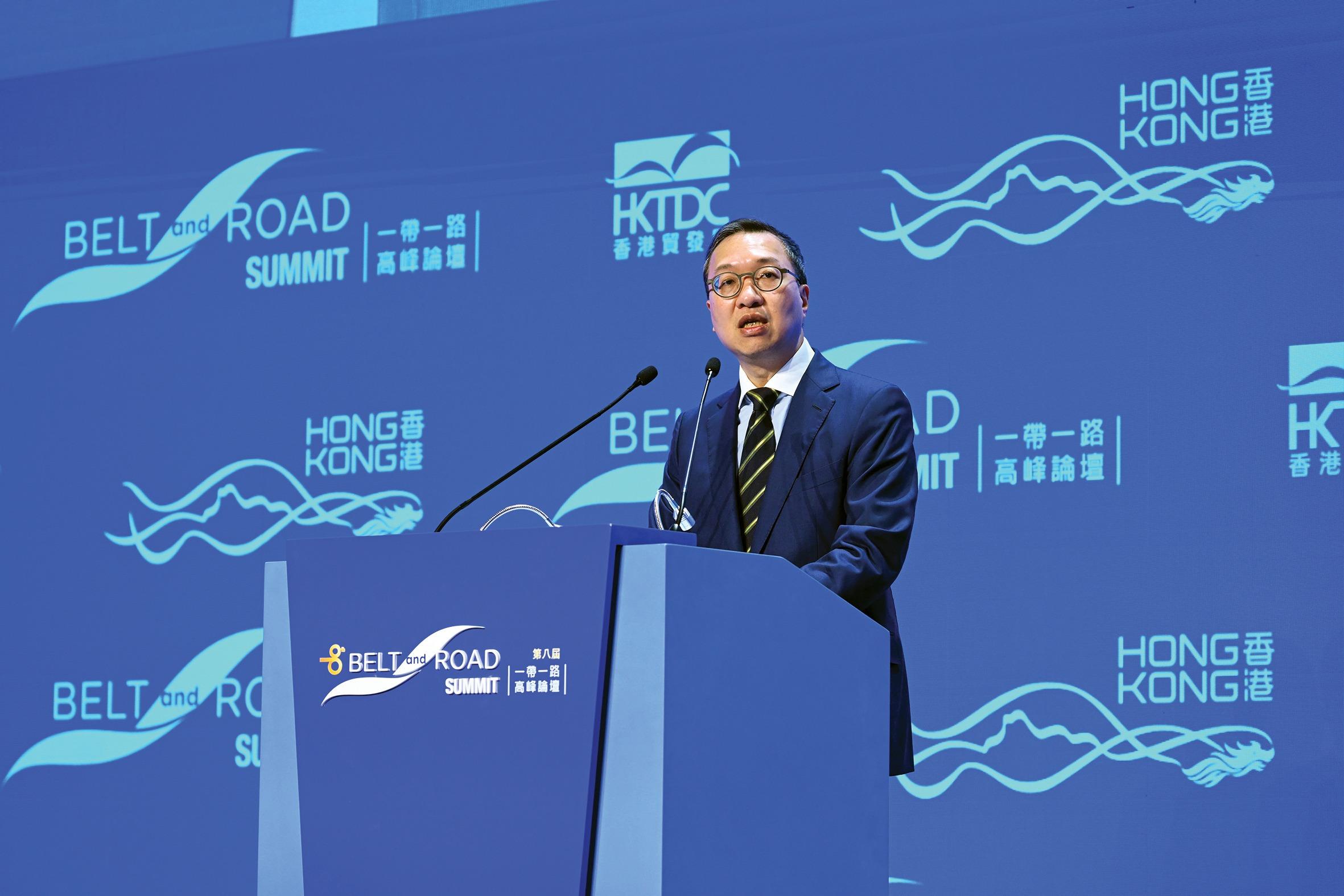 Hong Kong’s Secretary for Justice Paul Lam Ting-kwok delivers a keynote speech during the Belt and Road Summit 2023 at Hong Kong Convention and Exhibition Centre in Wan Chai on Sept 13, 2023. (ANDY CHONG / CHINA DAILY)
Hong Kong’s Secretary for Justice Paul Lam Ting-kwok delivers a keynote speech during the Belt and Road Summit 2023 at Hong Kong Convention and Exhibition Centre in Wan Chai on Sept 13, 2023. (ANDY CHONG / CHINA DAILY)
Hong Kong can play a critical role in facilitating legal cooperation to safeguard cooperation under the Belt and Road Initiative, officials and legal experts said at the eighth Belt and Road Summit in Hong Kong on Wednesday.
“Hong Kong plays a unique role in assisting the establishment of a sound international legal environment in the present context,” said Hong Kong’s Secretary for Justice Paul Lam Ting-kwok, while delivering the opening remarks at a thematic breakout session on international legal cooperation.
Lam said this is because the common law system is one of the distinctive statuses and advantages of the city under the “one country, two systems” principle.
“For the BRI to be effective and sustainable, it needs to be built on the rule of law,” said Christophe Bernasconi, secretary-general of Hague Conference on Private International Law, or HCCH. He delivered a keynote address in the thematic breakout session co-organized by Hong Kong’s Department of Justice.
The HCCH currently has 91 members. China began participating in HCCH’s activities in 1981, and became a full member in 1987.
Noting that it is not reasonable to expect that all the relevant and substantive domestic laws will be unified in and along the long trade corridors of the BRI, Bernasconi said that private international law is of great importance in the context of implementing the BRI.
Since Hong Kong returned to its motherland, the city has signed nine documents on judicial assistance with the Chinese mainland, offering a good choice for participants in the BRI to choose Hong Kong as a platform for dispute resolution, said Si Yanli, deputy director general of the Supreme People’s Court’s research office.
As of Sept 6, a total of 99 applications for interim measures have been filed through the Hong Kong International Arbitration Centre, involving 34 courts on the Chinese mainland with the total value of assets sought to be preserved amounting to 25 billion yuan ($3.43 billion), according to Si.
Creating an international organization in mediation from the ground up requires synergy from parties and stakeholders who are committed to working together toward a common goal, said Sun Jin, director-general of the International Organization for Mediation Preparatory Office.
The office was established in February to carry out preparatory work for the establishment of the International Organization for Mediation pursuant to the Joint Statement on the Future Establishment of the International Organization for Mediation signed last year by China and relevant states. Once completed, it will be the world’s first intergovernmental legal organization dedicated to resolving international disputes through mediation.
Sun said he is confident that the goal set out in the joint statement to complement negotiation on the convention in around two years would be successfully achieved.
Thomas So Shiu-tsung, chairman of eBRAM International Online Dispute Resolution Centre, discussed the center’s role in supporting cross-border business trade, saying it is a viable option for all parties regardless of financial capabilities.
The nonprofit organization is the first and only online dispute resolution provider from Hong Kong listed in the Asia-Pacific Economic Cooperation.
“This accessibility ensures that any enterprise or venture along the Belt and Road can access a reliable dispute resolution mechanism, promoting fairness, equality and confidence to engage in investment and business,” said So, who is also chairman of the Belt and Road Committee and Greater Bay Area Sub Committee of The Law Society of Hong Kong.
Anthony Neoh, co-chairman of the Asian Academy of International Law, moderated the panel discussion.



